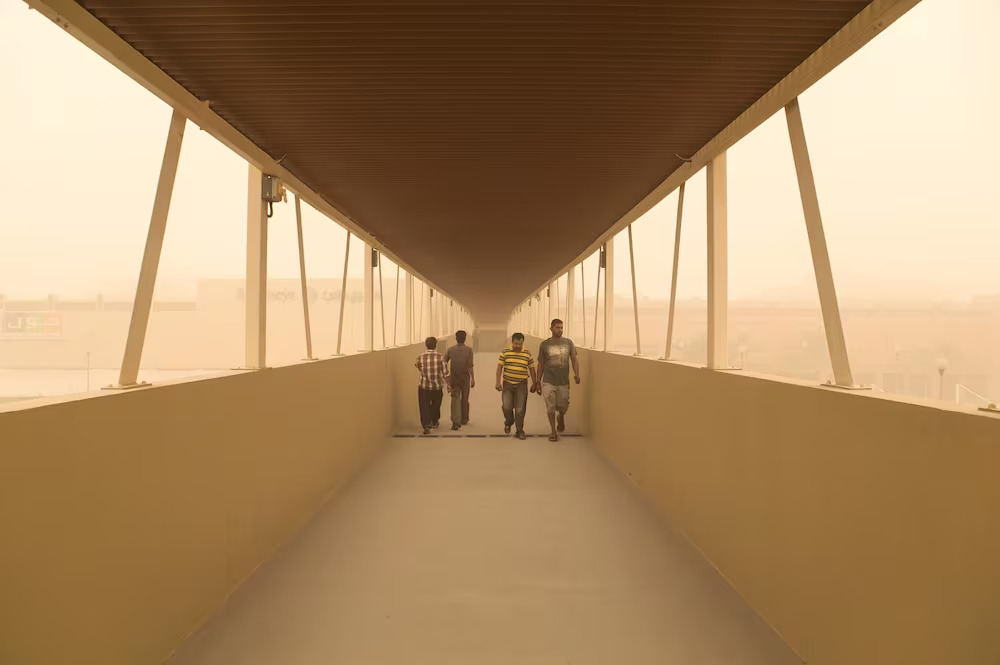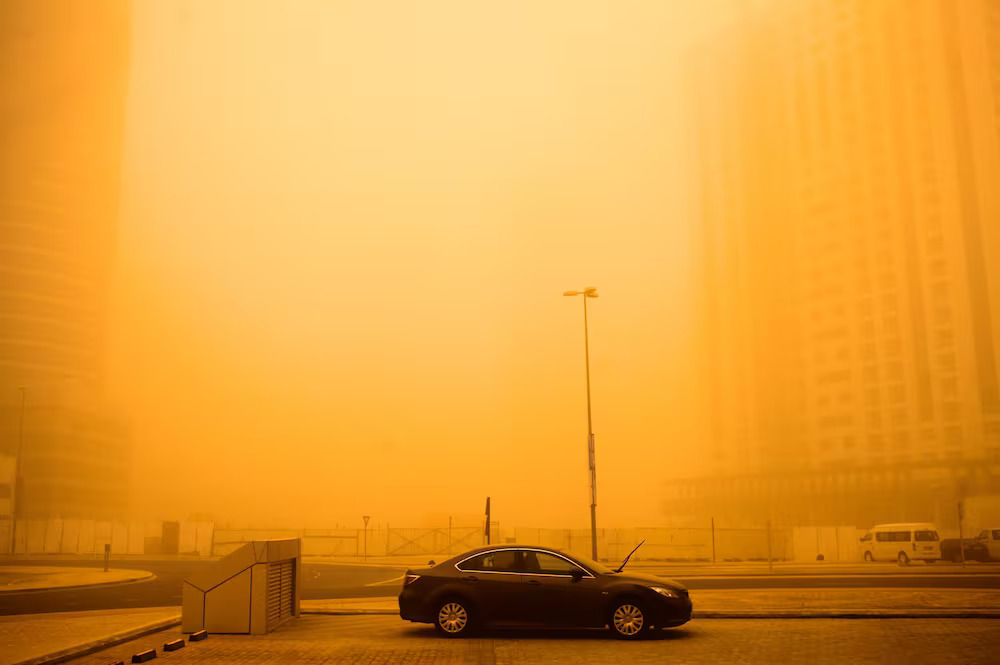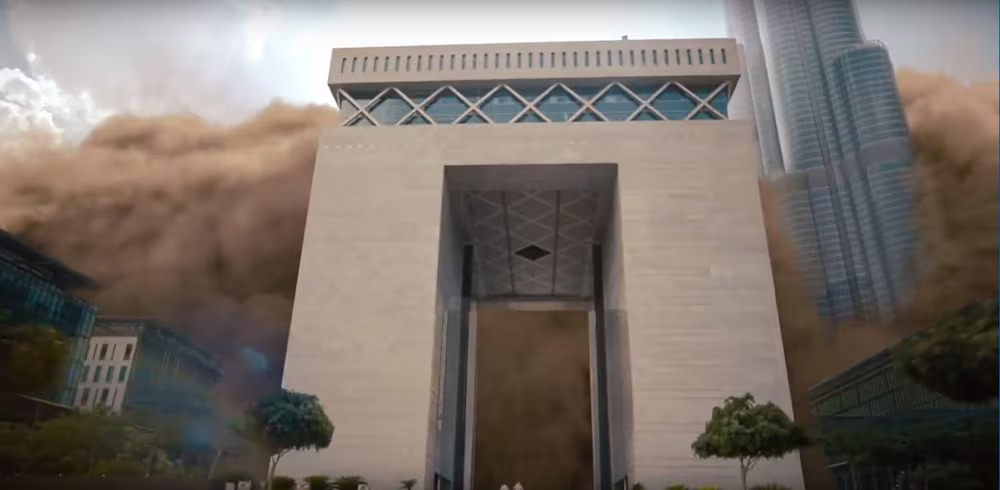Sand and dust storms are a common occurrence in the United Arab Emirates, posing a significant threat to the air quality and visibility on its roads. However, despite their frequency, the reasons behind these storms remain shrouded in mystery. This leaves us with many questions regarding their causes, potential health implications, and risks.
In this article, we aim to provide some much-needed clarity by exploring five fascinating facts about sandstorms in the UAE. We will delve into their composition, examine the health risks associated with them, discuss protective measures, and highlight ongoing initiatives to improve air quality.

1. Common Occurrence Amidst Turbulent Weather
Sand and dust storms are common occurrences in the United Arab Emirates, especially during the summer months and during transitional seasons such as spring. These events are often caused by a combination of high temperatures and powerful winds. In fact, a report from 2017 suggests that the frequency of these storms may increase due to the effects of climate change.
2. Composition Beyond Sand
Sandstorms are more than just carriers of sand, despite what their name suggests. In fact, they have the potential to transport a range of harmful substances, including pollutants, viruses, bacteria, dust mites, fungi, and even plants.
The exact makeup of a sandstorm can vary depending on where it originates and the areas it moves through, meaning it has the ability to pick up and carry harmful pathogens and substances along the way.

3. Health Risks and Vulnerable Groups
Although the size of sand particles makes it unlikely for them to deeply penetrate the lungs, they can still cause irritation in the upper airway and mucous membranes.
It is particularly concerning for individuals with allergies, asthma, or weakened immune systems, including the elderly and pregnant women, who face an increased risk of health complications due to exposure to sandstorms. This highlights the importance of taking necessary precautions to minimize the adverse effects of sandstorm exposure, especially for those who are vulnerable.
4. Protective Measures and Health Precautions
When sandstorms rage outside, it’s highly recommended to stay indoors if at all possible. If you do need to venture outside, protecting yourself with masks or wet towels draped over your nose and mouth can be effective in reducing the amount of dust particles you breathe in.
To further minimize the potential harm to your health, running air purifiers inside and keeping yourself well-hydrated are other smart steps to take.
5. Environmental Initiatives and Air Quality Improvement
Abu Dhabi has been actively taking steps to improve the air quality by partnering with global organizations such as the World Health Organization.
In its mission to further its efforts towards ensuring clean air, the UAE has expanded its initiatives to monitor and tackle the harmful effects of dust and sand-related health issues. This move highlights the country’s commitment to maintaining high air quality standards and protecting the well-being of its citizens.

Sandstorms in the UAE may not look like the ones you see in Hollywood, but they can still be harmful, particularly for people who are more susceptible to health issues.
It’s crucial to comprehend what causes these storms, what they’re made up of, and how they can impact public health in order to put effective measures in place to lessen their effects and guarantee the safety of those living through these events.



Companies That Support Israel: A List to Avoid
The 7 Largest Bunnings in South Australia
Does Red Bull Support Israel? Decoding the Unraveled Connection
Top 15 Largest Woolworths Supermarkets in Melbourne, Australia
Does These Firearms Support Israel? Exploring the Unraveled Connection
Does These Tech Brands Support Israel? Decoding the Unraveled Connection
Does These Filmography Support Israel? Understanding the Intricate Ties
Does These Online Business Support Israel? Exploring the Unraveled Connection